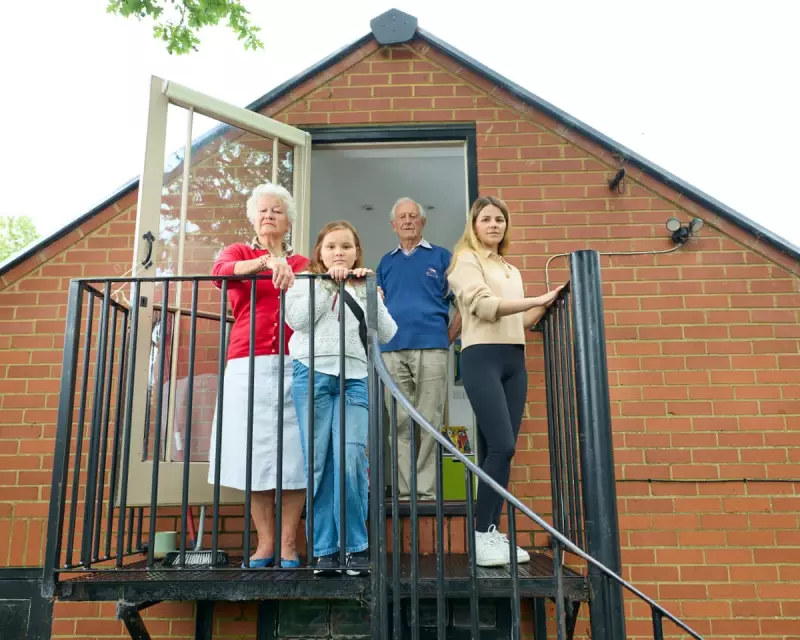
A heart-wrenching conflict between British compassion and bureaucratic red tape is unfolding in Somerset, where a local couple may be forced to evict the Ukrainian refugee they have welcomed into their home and their hearts.
Jane and Jonathan Lee, who opened their property to Svitlana Bilous and her son under the government's 'Homes for Ukraine' scheme, now face potential enforcement action from their local council. The issue stems from a converted outbuilding on their property where Mrs. Bilous's mother was due to stay.
The council has deemed this separate annexe a 'separate dwelling', which requires full planning permission—a Catch-22 situation as government guidance explicitly states refugees should not be considered 'separate households' for planning purposes.
A Family Torn Apart by Bureaucracy
"She is part of our family; we don't want her to go," Jane Lee told The Guardian, her distress palpable. The family's plight highlights a critical and painful flaw in the infrastructure of the UK's refugee support system, where well-intentioned hosts are trapped between offering help and complying with rigid local planning laws.
The couple had invested their own money to make the annexe comfortable, seeing it as a long-term solution for Mrs. Bilous's mother to join her family and contribute to the UK workforce. Instead, they have been served with a notice that could see the refugee family they consider kin forced to leave.
A National Scheme with Local Problems
This case throws a harsh spotlight on the post-Brexit complexities of UK planning regulations and their clash with national humanitarian efforts. The government's guidance for the Homes for Ukraine scheme seems to be at direct odds with how local authorities are interpreting and enforcing longstanding planning rules.
South Somerset District Council confirmed it is investigating the 'breach of planning control', leaving the Lees in an impossible position. Their story is a stark warning to the estimated 100,000 Britons who have opened their homes to Ukrainians, revealing the unforeseen legal and emotional pitfalls that can arise from an act of kindness.
The emotional toll on both the host family and their guest is immense. For Svitlana Bilous, the stability she found after fleeing conflict is now under threat, not by war, but by a planning dispute she cannot control.





